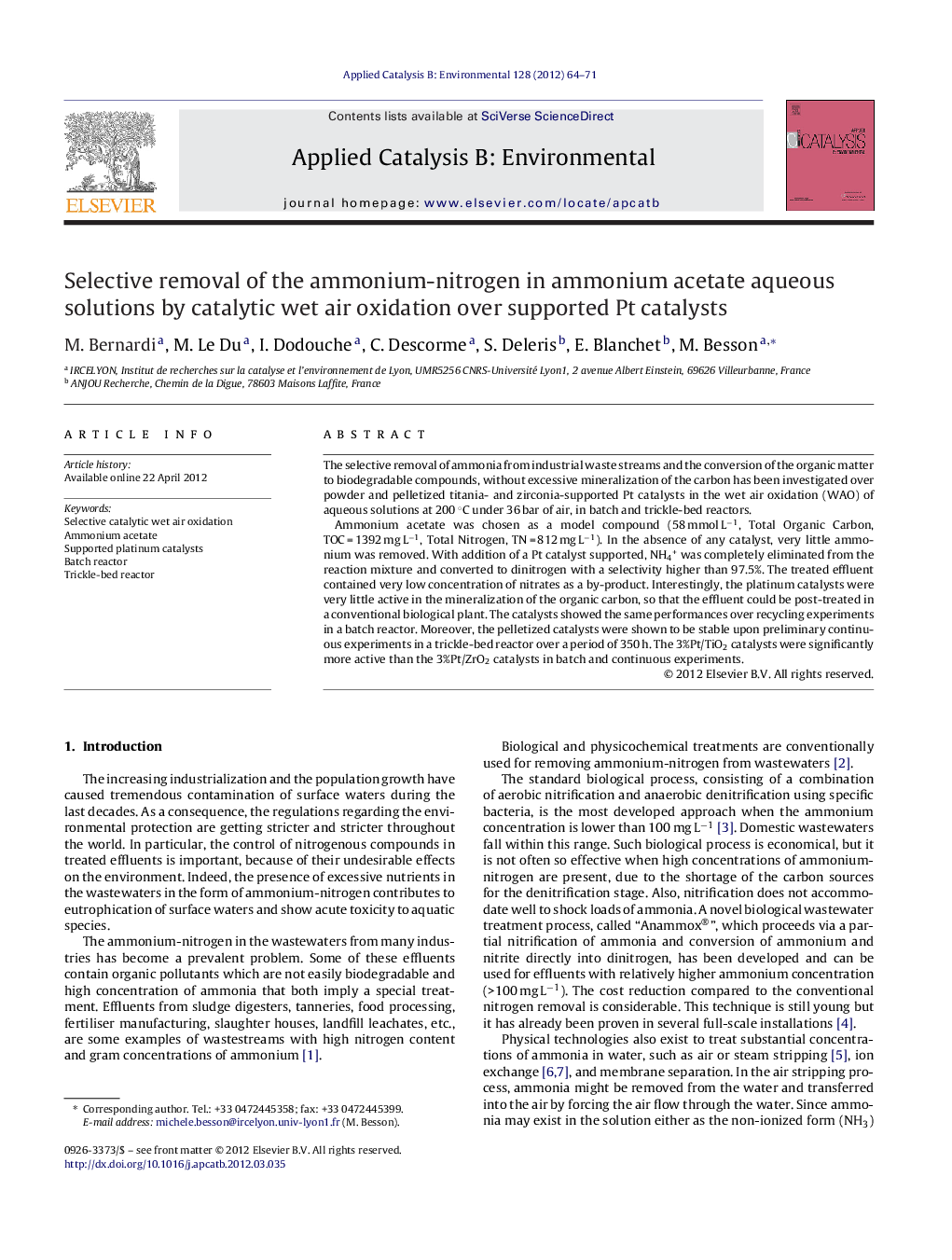| کد مقاله | کد نشریه | سال انتشار | مقاله انگلیسی | نسخه تمام متن |
|---|---|---|---|---|
| 46613 | 46443 | 2012 | 8 صفحه PDF | دانلود رایگان |

The selective removal of ammonia from industrial waste streams and the conversion of the organic matter to biodegradable compounds, without excessive mineralization of the carbon has been investigated over powder and pelletized titania- and zirconia-supported Pt catalysts in the wet air oxidation (WAO) of aqueous solutions at 200 °C under 36 bar of air, in batch and trickle-bed reactors.Ammonium acetate was chosen as a model compound (58 mmol L−1, Total Organic Carbon, TOC = 1392 mg L−1, Total Nitrogen, TN = 812 mg L−1). In the absence of any catalyst, very little ammonium was removed. With addition of a Pt catalyst supported, NH4+ was completely eliminated from the reaction mixture and converted to dinitrogen with a selectivity higher than 97.5%. The treated effluent contained very low concentration of nitrates as a by-product. Interestingly, the platinum catalysts were very little active in the mineralization of the organic carbon, so that the effluent could be post-treated in a conventional biological plant. The catalysts showed the same performances over recycling experiments in a batch reactor. Moreover, the pelletized catalysts were shown to be stable upon preliminary continuous experiments in a trickle-bed reactor over a period of 350 h. The 3%Pt/TiO2 catalysts were significantly more active than the 3%Pt/ZrO2 catalysts in batch and continuous experiments.
Figure optionsDownload as PowerPoint slideHighlights
► Pt/TiO2 catalysts were highly active in NH4+ removal from ammonium acetate effluent.
► The reaction was very selective to N2 (>97.5%).
► Mineralization of the acetate was moderate.
► The Pt catalysts were stable in continuous experiments.
Journal: Applied Catalysis B: Environmental - Volume 128, 30 November 2012, Pages 64–71